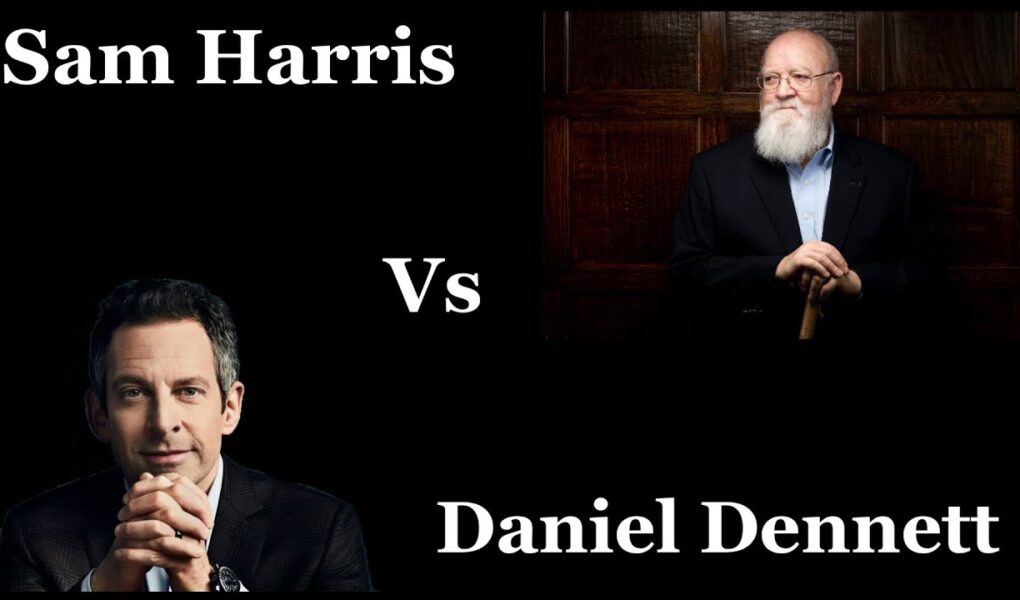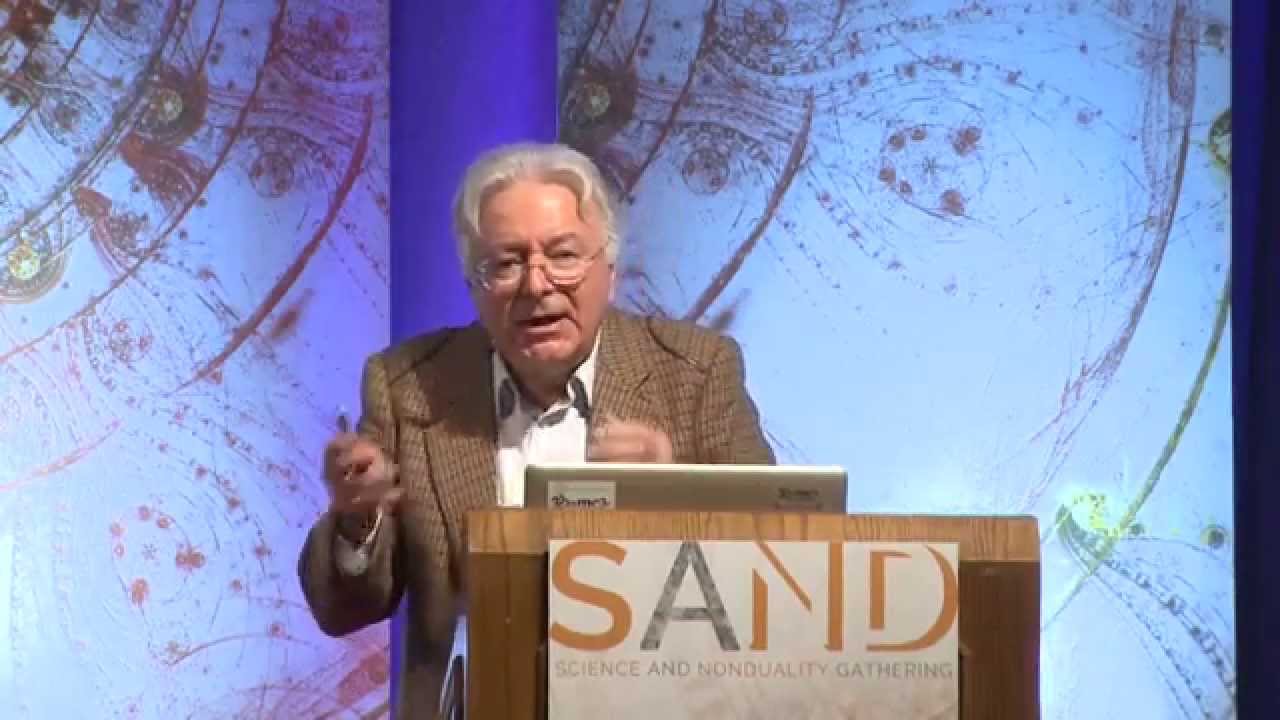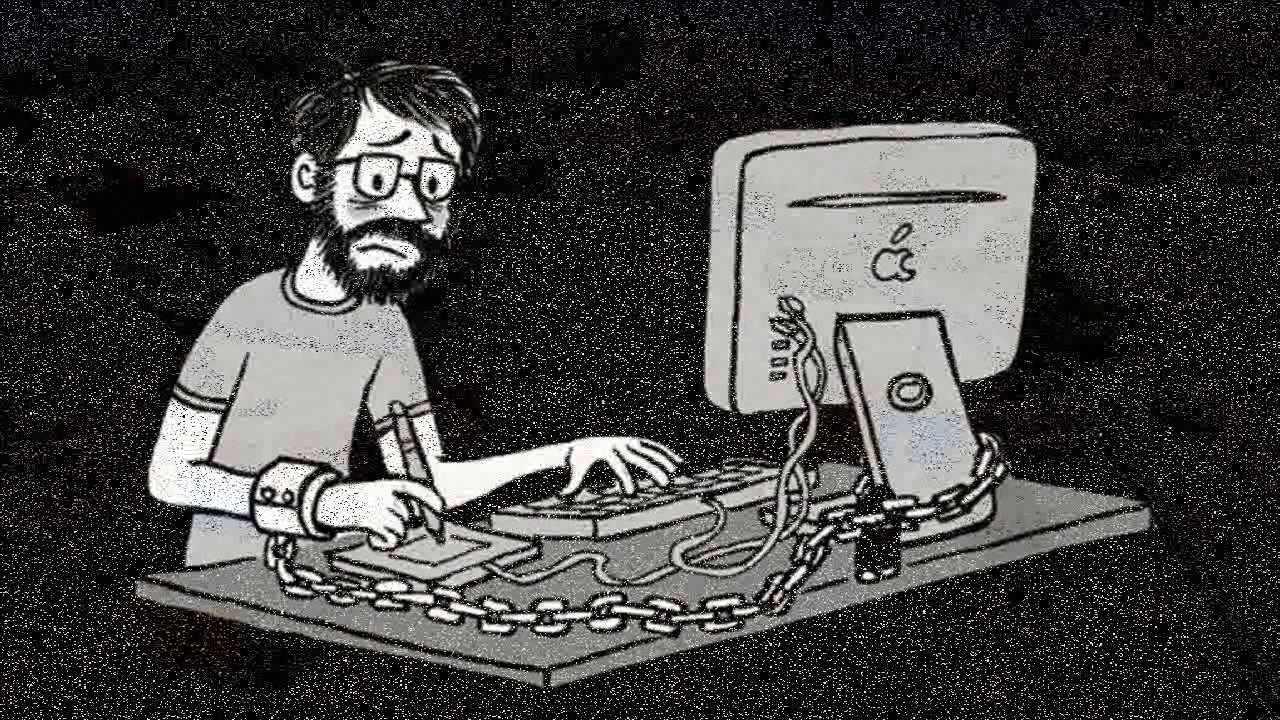Scott Smith75
#samharris #danieldennett #freewill
Sam Harris vs. Daniel Dennett. Free Will Debate.
Debate: 2018
I am starting a new channel for my review videos. Please subscribe to that channel. Link: https://youtube.com/channel/UCSlUIlpzf7dujRCbxAjMirA
Consider Supporting Sam Harris
Please visit: http://www.samharris.org/support
Subscribe to the podcast:
http://www.youtube.com/subscription_c…
Get Sam’s email newsletter:
https://www.samharris.org/email_signup
Follow Sam on Twitter: https://twitter.com/samharrisorg
Follow Sam on Facebook: https://www.facebook.com/Sam-
Harris-2…
For more information about Sam Harris: https://
www.samharris.org
Smash that like button and subscribe. Follow me on my other platforms.
Twitter: https://twitter.com/milnermerchant
Facebook: https://www.facebook.com/scottsmith75youtuber/
Source




I would say that there should be a distinction between retrospective free will and prospective free will. It seems to me time and uncertainty play a role in defining the degree of freedom someone has in acting or choosing a specific path. I understand Sam's idea of what happened couldn't be otherwise, and it seems logical to apply the same rule to future events. But past events, when seen in retrospect, are not uncertain because we were able to testify to the causation and effect of that phenomenon. Future events are more like bets than stories because, in many cases, the phenomena or the causation are NOT predictable. If you take Sam's idea to the extreme, it would mean, given the correct information and computation, we would be able to predict any future event with perfect certainty because the future is deterministic. But once we had those predictions, wouldn't we be able to change the future?
I guess Sam is a Realist and Dan is a Pragmatist
Dennett proceeds as though there is a separate mental agency with control over the brain. It’s so maddening. The experience of being is produced at the same time as the being. Is this a category error?!
daniel dennett sounds like an ableist person…. horrible
This is the first time I agree with Sam. He was very well on point here. Daniel never touched the subject of free will.
If you changed the four year old Hussain's education, parents, society, you'd completely change his library so the thoughts that could arise or not arise. Different skills that he'd have to handle emotions etc. Daniel says his way you could teach him to be an autonomous adult. That's clearly not what happens. What happens is other version of this person now will indeed be a better version of himself but not because he chooses to. Because he was given all of these other skills and data in to his system which now runs different calculations. Different domino's were placed. He didn't choose those domino's neither the environmental or the genetic.
To me it seems clear that Dennet as he often says there's no absolute responsibility he's saying there's no absolute free will as in from the third person perspective. So all his notions of there still being free will are based within the illusion of first person free will. So he should actually clarify each time clearly that the free will and any argument he makes is merely a argument based on the first person illusion of free will.
On the pill Dennet is right. It's not a good idea to not have prisons or rehabilitation systems.. treating and educating people there would be good but to just give a pill and go home no. So you'd have to recognize lack of absolute free will but also the need for the illusion of free will to be recognized as well. From the illusion of free will perspective or pragmatical perspective to drive people to not just say oh I don't have the genes for it we'd say tough luck better learn some new skills then we can help you. So you'd have to have prisons but prisons that do also recognize the lack of absolute free will or causation of various factors it the lack of causation of various variables.
Consciousness is a continuous act, not a result of emergent momentary acts.
36:32 “moral responsibility is something that we have to redefine, in the way that you are eager to redefine free will”….. 😂 Sam is such a savage!
Re: the topic of Sam being able to produce a transcript of their talk before it began…. A.I. is proving this point already, a little bit. Daniel says it would be a greater feat if Sam produced a poem he asked Daniel to write. A.I., if exposed to enough works of Dennet’s, will come up with one that “sounds” like him. Of course, the AI isn’t going to be able to predict it, because it’s still lacking huge amounts of data. But, it’s getting there.
I am astounded that such a celebrity as Daniel Dennett just does not get it. His example of controlling the boat is downright ridiculous.
I have an issue with the claim around the 16:20 mark. Varying degrees of freedom amongst living organisms is entirely subjective.
Because a plant can convert the rays of the sun into food, does that mean I am more or less free than the plant? How am I even supposed to compare my degree(s) of freedom to that of a plant? That being said, I disagree with the level of control that we possess is “completely absent in any other creature” 16:22.
Also, I want to quickly make the point that different rocks will not melt at the same time. Two pieces of Limestone that differ in sizes will not turn into quicklime at the same time.
How does this fact relate to a Human’s response to the environment?
Sam Harris doesn't disagree with Dennett's version of compatibilism. He disagrees with what compatibilism ACTUALLY is, scientifically speaking. It seems that Dennett doesn't grasp that.
To the Dennett's "Consciousness exists, it just isn't what you think it is," I'd respond with, "Will exists, it just isn't free." Nobody's asserting that will doesn't exist when they say free will doesn't exist. They're just saying it's not free.
Dennett's whole issue is with the way this would affect society, yet he's almost purposefully ignoring the point Sam kept making about how society and the law wouldn't work differently because it would still be PRAGMATIC to work the way it does. A better understanding of what lack of free will ACTUALLY means wouldn't negate that pragmatism.
Sam wasn't trying to say that some people are wired right and others wrong, but that being wired at all implies lack of freedom.
When Dennett says that we have the capacity to respond to circumstances, he's failing to overlook that that doesn't imply our responses are totally in our control. I won't deny we have a sense of agency. But not total control. If you're to say that we act in accordance with our will, you have to acknowledge that we have a will to act in accordance with. And we don't get to initially choose our will. If you think you can choose your will, you'd have to be able to defend how you chose it, if not with a prior will as to what your will is to be, and apply your own argument perpetually, in a chicken-or-egg cycle that would always lead back to an initial, unchosen will.
"Man can do what he wills, but he cannot will what he wills."
"Are you signing this of your own free will?" translates to "Are you signing this of your own will?"
If you're going to define "free will" the same way anyone would simply define "will," is there really any reason to apply it in everyday life? "I will do this," and "I will do that" doesn't require the "free." The only reason there's even so much confusion and dichotomy and debate on this topic in the first place is because "free" was vaguely attached there without context.
Sometimes we made choices consciously, sometime we act and behave sub consciously or even lack of total awareness. The fact that even if we made our choice to do anything, it's determined by many factors, our genetics, our upbringing, our life experiences, our intelligence, our hormones are many times not within our control, there's hardly much free will that your decision is never influenced by anything at all.
Dennett's problem is his dogmatic attachment to his idea of what moral responsibility is.
Will someone please tell me what he’s saying at ~4:01? Something like “rapid course rules?”
IN multiple conversations and videos on this subject I've yet to see someone make what I think is the easiest illustration of free will being an illusion. You cannot separate any choice that is made from the beliefs of the one doing the choosing. Every choice that is made is made in alignment with (i.e. is determined by) the beliefs of the chooser. Beliefs are not chosen. A belief happens to a person just like the perception of red, no control in the matter. So, to say that we freely make choices determined by our beliefs (which we do not choose) seems like a confused statement to me. Let's say I offer to buy you whatever ice cream you want right now. Out of the 12 available flavors at the ice cream shop you choose the one that you want. You didn't choose to want that one.
The bar tender cant be breatblyzing clients and all friends can TRY do is get keys and that depends on whose stronger.
Tiger probably thinkin his cheatin is gonna be exposed😊
why the fuck is daniel stammering so much
very hard to listen to Daniel's crappp! The way he talks to Sam probably he s like most old people, i m older than you so no respect displayed towards u who are 30 years younger. mind blowing…. especially bc it comes from an academic?! 😂😂😂😂
he fooled his generation with his biased ideas but he failed in doing the same with the current generation and the future ones.
To think and resonate on things from an objective, realistic perspective is what this world needs, not titles, not fame or preaching doing philosophy when half of ur ideas are full of selfish needs and dreams
If I swear an oath but can show it was not sworn of my own free will I cant be judged for not keeping my oath. That covers 95% of what we mean when we talk about free will.
Sam defines free will as something that is uncaused which makes no sense given that a will is always caused. So Sam first defines free will as something that is impossible the proceeds to explain why it cant exist. Its just dumb. Its the reason 59% of professional philosophers are compatibilists and just 11% think free will doesnt exist.
The main problem with sams argument is that determinism doesnt mean caused. There are non causal determinisms too. More importantly Indeterminism is not uncaused. This easiest to see when quantum effects.are considered. What determinism means strictly speaking is that given a set of initial conditions only one outcome is possible and with enough calculating power that outcome is knowable in theory. Take radioactive decay, it is indeterminate not because there is no cause but that knowing the initial conditions doesnt enable you to determine the outcome. So the reason determinsim does not negate free will is because it does not mean an uncaused will. In a naturalistic philosophy causality is the way we would expect free will to manifest itself.
Dan Dennet sure lacks emotional intelligence. Fortunately he had no choice in its development.
48:12 after listening to what Sam said he says this.. ? Dan is one confused old man.
Let's build a probability space. Let's give it 3 dimensions. Plus time.
Each “probability line” is a vector with the directions “away” or “toward” the origin. T 't' coordinate is the distance from the origin.
Each “probability point” is a “now.” Each point indexes one configuration in a 3D space of physically possible configurations of reality.
Is this the Big Bang a probability space with origin at the 'event' (0,0,0,0) with only away vectors?
Or is it like Feynman's sum over histories or QM with each point in space having a probability space around it? A light cone?
Is this a philosophical many worlds in which each and every possible choice made by some different 'you' – as real as you – a different vector in probability space?
Free Will exists in this probability space. Your past compels you to have it. You are the one who made the choices you did. If a different choice could have been made a different 'you' which was identical to you at a time t, but not at the next, t' made that choice. A different ray in the BB probability space. You were free to make choices and made both.
59 minutes in and Dan still hasn’t articulated his point in any solid fashion.
So hard to listen to Dennert talk, he's such a dumbass. High school level understanding of determinism. I love how every response to critique of compatibilism ive ever gotten was "you just dont understand compatiblilism".
Appears that Dr Denial Dennetts’ disability/cancer here is his theological conditioned attachment to moral-responsibility.
Dan absolutely must have people be responsible for their actions. Period. And that need skews his viewpoint and taints his ability to be objective. Reminds me of JBP and his incessant need to defend religion because he can’t accept that being an atheist doesn’t mean you’re going to a psychopath.
Compatibilists try to save "free will" by redefinig it so that it merely refers to the abiliy of humans to analyze possible choices and their consequences. But then free will is just a poetic expression for the complexity of human minds and their intellectual capacities. And as Sam beautifully explains by his Sicily analogy: That is simply not what most people mean by "free will"; to them the whole charm of free will vanishes, if free will ceases to be the "antidote" to a clockwork type universe in which everything, including every tiny decision we make, is predetermined. My personal analogy for how compatbilists try to sell "free will" is somewhat similar to Sam's: It is like promising a little boy that he will get a magic carpet for his birthday. But then instead of a magic carpet the parents give the boy a new bike, which is cool too, but it simply isn't what they promised … They then explain to the boy that real magic carpets of course don't exist, but the bike is pretty much like a magic carpet and it is all he needs – with a bike you can as well get from point a to point b and if you close your eyes for a short moment while riding it it feels like flying bla, bla, bla … 😂
Good old western thought – start from mistaken premises and all kinds of fun can be had🎉🎉🎉
A sensible model of the mind can be found in Theravada Buddhism, where free will is and will always be a non-issue
Sam is not saying we should not hold people responsible for their acts. Dan thinks he is. I believe rehabilitation should get nods over sever punishment. Look at countries where this is the case vs the US where so many are pure victims of their backgrounds. Dan makes a point of control but he acts as control is something not subject to determinism. All in all I feel Dan lost something on his fastball. Sam is right on. Great discussion and they kept saying their starting positions over and over and over. Great subject. I think meditation has really helped my actions. Wish more got better education.
Can Dan please stop fucking shoving food down his ducking face during a debate? God fucking dammit I cannot stand this fucking pontificating piece of absolute shit